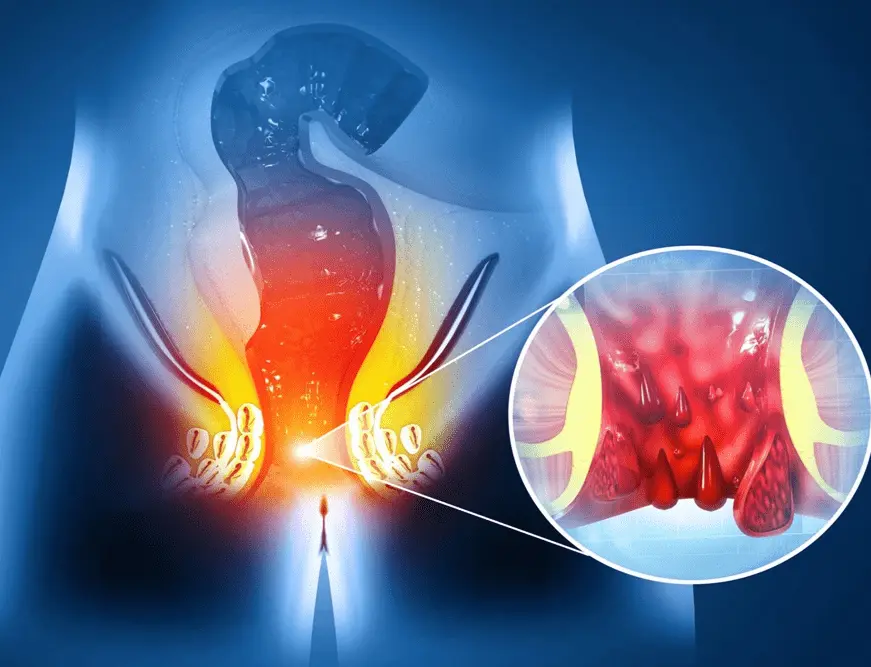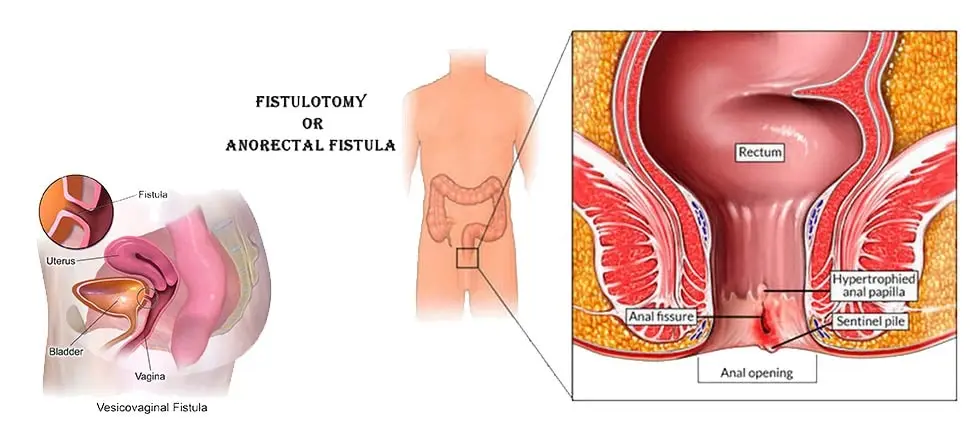
Fistula Treatment In Indore
An anal fistula is a small tunnel that develops between the end of the bowel (the anus or rectum) and the skin near the anus. It often results from an infection near the anus, leading to the formation of a tract or tunnel.
While anal fistulas can affect both men and women, there are certain conditions or factors that may increase the risk in women:
Childbirth: Women who have experienced a perianal abscess (an infected cavity near the anus) during or after childbirth may be more prone to developing anal fistulas.
Crohn’s Disease: This inflammatory bowel disease can affect any part of the digestive tract, including the anus and rectum. Women with Crohn’s disease may be at an increased risk of developing anal fistulas.
Infections: Infections in the anal or rectal area, such as abscesses, can sometimes lead to the formation of fistulas.
Inflammatory Bowel Disease (IBD): Conditions like Crohn’s disease and ulcerative colitis, which are more common in women, can increase the risk of anal fistulas.
Prior Anal Surgery: Previous surgeries in the anal area may increase the risk of fistula formation.
Common causes of anal fistulas in women
- 1) Long-standing abscess
- 2) Underlying medical conditions
- 3) Tuberculosis
- 4) Previous Anal Surgeries
- 5) Sexually transmitted diseases
- 6) Hormonal Changes
- 7) Pelvic Inflammatory Disease (PID)
Symptoms of an anal fistula in women
- 8) Persistent Anal Pain & Swelling
- 9) Swelling around the anus
- 10) A persistent discharge
- 11) Itching or Irritation
- 12) Pus or bloody discharge
- 13) Skin Infections & Skin Maceration
- 14) Woman may experience fever
Anal Fistula Treatment

Treatment for fistula depends on certain factors such as the location of the fistula, presence of sepsis or large abscess and the findings of the physical examination. The goal is to completely repair the fistula and prevent its recurrence and to safeguard the sphincter muscles. Damage of the sphincter muscles can lead to uncontrolled bowel movements.
Usually, surgery is the best treatment for anal fistulas. The main surgical procedures include:
Fistulotomy: This procedure involves cutting open of the fistula which heals into a flat scar.During 17th century, where the state of medicine was very bad, Louis XIV, the Sun King of France had anal fistula and was treated by fistulotomy.
Seton procedure: This procedure involves insertion of a small surgical thread called seton, in the fistula to drain the infection. This helps in healing before carrying another treatment.
Ligation of intersphincteric fistula tract: This procedure is done in two stages and is to treat complex fistulas. Initially, a seton is placed in the fistula to widen it. After several weeks, the infected tissue is removed, and the fistula opening is closed.
Other techniques such as filling the fistula with special medical glue or covering it with a tissue or blocking it with a special plug may be performed. For more complex fistulas, techniques such as ostomy and stoma, or muscle flap are performed.
Discuss the benefits and the risks of every procedure with your surgeon about the procedures before undergoing one. Dr Vandana Bansal is one of the best fistula doctor in Indore. She has more than 27 years of experience in her field of surgery.
Looking for the Best Female Fistula Surgeon in Indore? Explore expert solutions including advanced medical treatments, and surgical options. Start your journey to a healthier life today!
